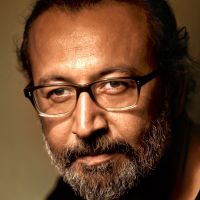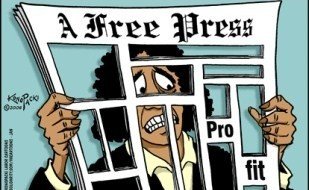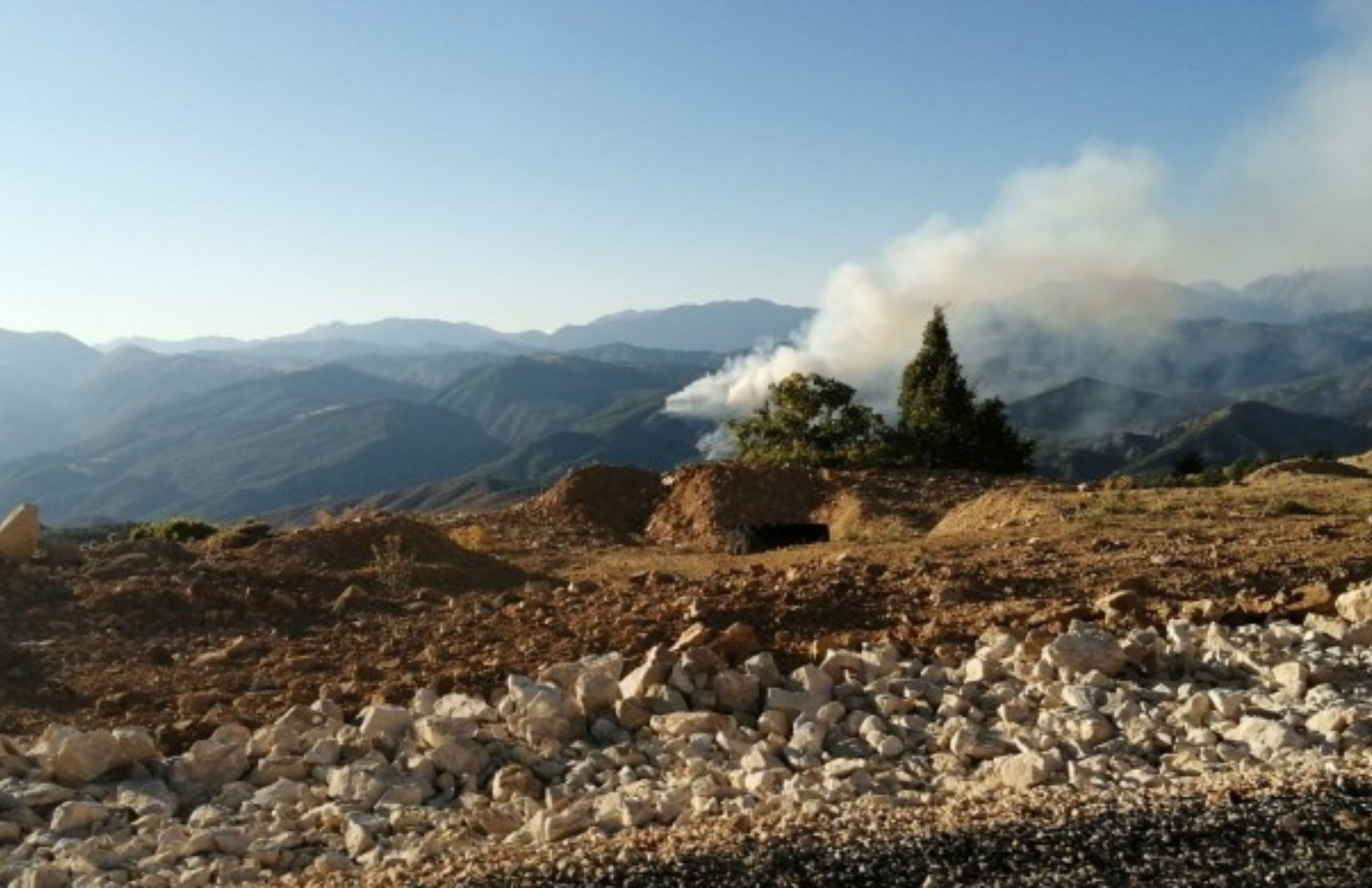"Establishing a Countrywide Network for Monitoring and Covering Media Freedom and Independent Journalism" (BIA²) Project by the IPS Communications Foundation and the Turkey Unit of the United Nations Children's Fund (UNICEF) organized the third of the training seminar series on Reporting on Children's Rights in Ankara on January 21-22.
About 40 local reporters, representatives of non-governmental organizations, and academicians discussed possibilities for a child-friendly media and children's participation in the media, on the basis of rights reporting.
There were heated discussions on children who have been pushed into committing crimes and the media's violations of rights when covering issues about children.
The local media will be more sensitive
The participants agreed that children are not only the adults of the future or members of the family, but individuals who have certain rights in the society. Through a "letter of commitment" they signed after the training, the reporters pledged to "fulfill their responsibilities as members of the media, to implement the rights outlined in the United Nations Convention on the Rights of the Child."
In this letter of commitment, the participants promised to "pay attention not to violate children's rights when reporting about children, to try and protect the children's freedom of expression and their right to express their opinion on issues that concern them."
They also promised to produce a certain number of "news reports or interviews about children, or about issues that would raise awareness about children's rights in the next six months" and to spend effort to get these news reports or interviews published by the media company they work at.
Hosta: The media should take upon the role of being inquisitive and supervisory
The training began with BIA² Project Advisor Nadire Mater talking about the BIA project, and Sema Hosta, who is responsible of the UNICEF Communications Program, talking about UNICEF's New Country Programme.
Hosta drew attention to the fact that the media's mission is not only to report but also to be effective in being inquisitive and supervisory.
Hosta underlined that the media, and especially the local media, has a big responsibility in advancing children's rights. She said the most important experience of UNICEF was to work locally and expressed the fact that conditions can be very different even in regions that are geographically very close to each other.
She said the local media has a lot of say especially in campaigns. Hosta stated that the local media acted much faster and more effectively than the national media in the "Come on Girls, to School Campaign" launched to encourage girls to go to school, for example.
Geldof: Many people are not aware of the United Nations (UN) Convention on the Rights of the Child
"Many people in the world are not aware of the UN Convention on the Rights of the Child," said Lynn Geldof, the UNICEF Europe and Central Asia Communications Adviser, who attended the training seminar.
"And very little people know that the two countries that did not ratify the UN Convention on the Rights of the Child are the USA and Somalia."
Geldof said Turkey, as a country that has ratified the Convention is obliged to present periodical reports to the UN Committee on the Rights of the Child in Geneva. "The preparation of the report is a very important process because it harmonizes national regulations with the Convention," said Geldof.
Geldof said that the alternative reports by non-governmental organizations are the voices of the civil society and serve as a social control mechanism on issues not covered by the government reports.
"The media can fulfill its responsibility by making the government accountable to children," said Geldof, adding that the media should respect the privacy and rights of the children when talking to them, or writing about them.
Onat: Equal responsibility for a point of view that has a focus on children
Yasemin Onat, a lawyer from the Antalya Bar Association made the first presentation on Saturday on "Children's Rights and Reporting." During her presentation, she talked about the UN Convention on the Rights of the Child, the UN Millennium Development in Turkey, children's rights as the subject of the news report, and the media's handling of children.
Onat said that the UN Convention on the Rights of the Child oversees four basic rights of the child: The right to live develops, protect and participate.
She said that a child-centered perspective views children as active individuals, active members of the society.
Onat said there is a very widespread belief that the parents carry all the responsibility of the child. But she stated that the UN Convention on the Rights of the Child imposes equal responsibility to teachers, law and healthcare workers, state institutions, politics, budget, NGOs, media and international institutions and regulations.
She said the system would collapse unless all the aforementioned fully protect the children and fulfill their responsibilities.
"Legal notions that are not used correctly legitimize rights violations. Under the law, children under 18 cannot be questioned. Children under 12 do not have criminal liability. They cannot be called a 'criminal'."
Onat said all investigations that involve children should be confidential and closed to press and public.
"Article 17 of the UN Convention on the Rights of the Child regulate the children's right to obtain information, documents and news from means of mass communication.
* Information and documents that comply with the needs of the child.
* The publications should not have a harming or labeling effect.
The participants analyzed the expectations of the children, families, society and media managers' expectations from the media during the "Role of Press" workshop directed by trainer.
Cangoz: Language is a subjective instrument
On Saturday afternoon, Assistant Associate Prof. Dr. Incilay Cangoz from the Communications Department of the Anadolu University, made a presentation on "Children as the Source of News, Ethics, Violations of Children's Rights in the Media."
Dr. Cangoz said the media produces representations in the public space and these representations gain a social meaning. She underlined the importance of what is being chosen as representation and how it is being communicated.
She said that children are only subjects of the news on religious holidays, children's days, and at the beginning of school years.
She argued that children, who are viewed as objects of consumption, are presented as 'villains' in the media. She said the media's economy-politics, the codes of professional journalism, the hierarchical structure of the media production, sticking to certain sources and the use of masculine-language, all play a role in this.
"We perceive the world, ourselves and our surroundings with the language we create," said Cangoz. "We have to be careful when creating meanings." She examined news clips with participants.
Degirmencioglu: We need to think collectively
Associate-Professor Dr. Serdar Degirmencioglu of the Children's Rights Coalition, made a presentation after Cangoz, on "Children's Representation in the Media."
He expressed that participation is a basic right of the children and talked about the possibilities of children's participation in the media.
Degirmencioglu said research shows that children prefer the Internet and television. "There is no place for newspapers in their preferences, if the newspapers continue to ignore children, they will have no future."
Degirmencioglu said participation means, having a say in the decision-making process, to be influential, to have the opportunity to actively intervene, and to be able to work with adults.
Working with children means "less filtering, new ideas and creativity," added Degirmencioglu. He argued that the newspapers should embrace the attitude of making a difference instead of protecting the system and highlighted the advantages of the local media:
"The national media, because of its sterile structure, is distant from the children. But the local media has many opportunities."
Degirmencioglu gave examples participation of children in the media. The participation of young people in the local "Bush Radio" in South Africa, the publication of the "Agustos" (August) newspaper by the young people who were affected by the 1999 earthquake, and the storesoup.com, which is prepared by children and edited by adults in the US, are successful examples of "working together."
Duran: the media should stop producing the perception of child in society
On the second day of the training, BIA Project Advisor Nadire Mater talked about the bianet Web site, and BIA Children's Rights Editor Kemal Ozmen talked about the Children's Web site.
Ragip Duran from the Communications Department of Galatasaray University, conducted a workshop on "Violations of Children's Rights in the Media, Covering Children's Issues and Conducting Interviews with Children."
Duran, in a presentation before the workshop, advocated that the media recreates the society's perception of children. He said the notions about children, who are usually limited to ages 0-18, are not properly known and added this negatively affects the news reports.
He said it is very important for the media to correctly structure the notion and image of the child in fighting against prejudices.
"It is very dangerous to consider the child as 'the other,'" said Duran. He drew attention to the fact that children are frequently subjected to violence, discrimination and are exploited for pornography.
Duran said there are not many differences between interviewing children and interviewing adults but added the reporter must pay attention to certain issues when the interviewee is a child.
After discussing with participants what these issues may be, Duran listed what a reporter must do when interviewing a child:
* The child must be regarded as an independent individual,
* The child must be informed before the interview,
* The reporter must get permission for the interview,
* The reporter must choose a place where the child would feel comfortable,
* The questions must be clear and proceed from general to particular
* The language should be simple and understandable,
* The reporter must avoid being accusatory and should ask objective questions,
* The reporter must not be sentimental and should keep an emotional distance,
* The reporter must confirm the information taken from the child
The participants broke into four groups after the workshop and analysed the violations of children's rights in the media by using news clips.
UNICEF representative Lynn Geldof made a presentation after the workshop and talked about the importance of correct information about the avian influenza and the points that the media should pay attention to when covering this issue.
Criticisms and proposals
After the training seminar, participants presented their criticisms and proposals.
All participants said they found the training very fruitful and added they would share what they have learned with their colleagues.
There were criticisms on the technical problems that caused the training to be interrupted from time to time, and that the seminar was too short.
The participants asked for the training seminar to continue and to be conducted in their provinces as well.
Participants
Afyonkarahisar: Mustafa Daghan (Goruntu newspaper), Onur Zelveci (Odak newspaper), Selahattin Celikkol (ER TV), Sait Karaduman (Anadolu News Agency),
Ankara: Mete Karakul (Newspaper Ankara) Berin Canli (Oz-Ge Der), Janset Bay (Oz-Ge Der), Recep Dogan (SHCEK), Cilem Kaya (Birgun newspaper), Turkay Asma (Ankara Bar Association Children's Rights Commission), Melika Komurcu (Ankara Bar Association), Ismail Yuce (Manset News), Abdullah Irem (Imaj radio), Bedia Boran (Ankara Bar Association), Sevilay Celenk (Communications Department of Ankara University), Irfan Aktan (Communications Department of Ankara University/ bianet)
Aksaray: Fikret Irmak (ART), Nurcan Yolalan (ART)
Bolu: Huseyin Aykan (owner of Newspaper Express) , Bedriye Ensari (Newspaper Express)
Corum: Gunes Cuhadar Corum Haber newspaper
Hakkari: Sevket Yilmaz Yuksekova news
Cankiri: Ali Kor (Bizim Cankiri newspaper)
Konya: Umit Kalkan (Press Office of Konya Metropolitan Municipality), Mehmet Yasa (KTV), Fikret Malkoc (Memleket newspaper), Hasan Bacaksiz (Anadolu Gundem), Muhammet Sorgun (Sun TV)
Nevsehir: Hasan Sozlu (Metropol Haber), Adem Ozdemir (Gul FM), Mediha Iven (Goreme TV)
Nigde: Ahmet Oncu (Nigde Haber newspaper), Muhammet Yilmaz (Nigde Haber newspaper), Fevzi Buyukkural (Anadolu Haber newspaper), Fatih Kizilkaya (Hamle newspaper), Zonguldak: Zuriye Iskenderoglu (Inanis newspaper). Ismail Cizmeci (Hamle newspaper) ((KO/AD/EA/YE)







